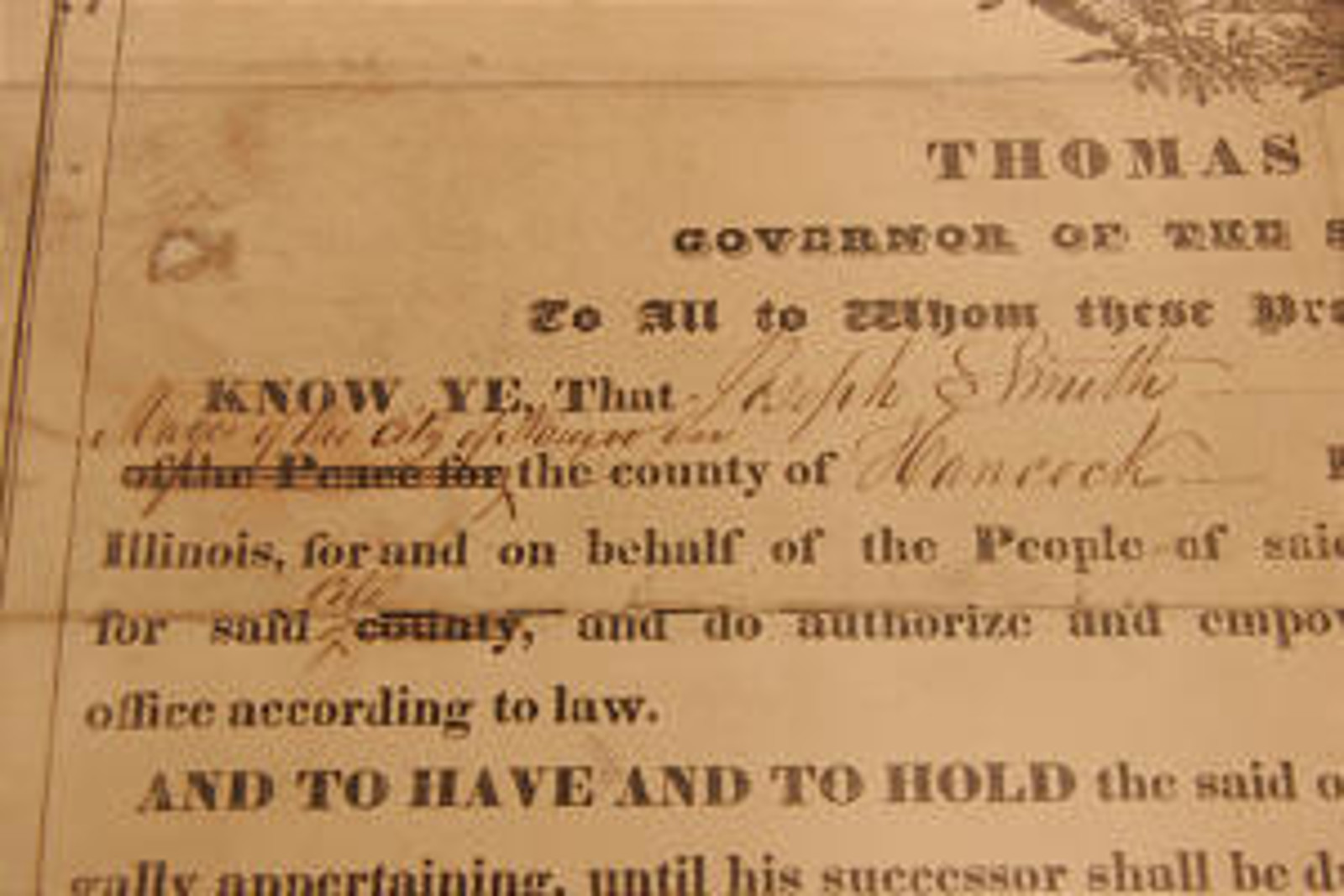I oftentimes see critics of the Church comment, “How can you believe a convicted con man like Joseph Smith was a prophet of God?!”
Being a convicted con man is a decently serious accusation, so in this episode, we’re going to look at whether or not that’s true. What crime did he allegedly commit? Who accused him? What happened at court? Why wasn’t I invited? Were there 12 angry men? Did Jack Nicholson testify? Alright just cue the music.
In a past episode about seer stones, we touched briefly on how Joseph Smith dabbled in folk-magicky stuff as a young man. Lots of people did, it was pretty normal back then. They didn’t even call it magic, it was just their culture. Anyway, watch it, if you haven’t. But the notion that Joseph was a convicted con man usually stems from Joseph’s experience using a seer stone to try and help a man named Josiah Stowell find buried treasure. Here’s what happened:
Joseph Smith was known in his community as someone who could use a seer stone to find lost stuff. In the Spring of 1825, a guy named Josiah Stowell heard about Joseph and approached Joseph with a gig to help find a lost silver mine. The 20-year-old Joseph Smith worked with Josiah for less than a month before persuading Josiah that it just wasn’t working out.
In March of 1826, either Josiah’s sons or it could have been his nephew, charged Joseph with falsely pretending to discover lost goods, which fell under the category of disorderly conduct at that time. And so, Joseph appears before Justice of the Peace, Albert Neely.
Here’s the problem: There are several different accounts concerning the outcome of the case. Some sources say Joseph was found guilty. Some say he was acquitted or discharged. One even says he was guilty but allowed to escape. Another says it wasn’t even a trial, it was an examination or a pre-trial. So we have conflicting accounts, but there is no official court documentation of any conviction or guilty verdict, which I’m sure the critics are totally bummed out about. If we consider Joseph Smith innocent until proven guilty, as we should, then he’s innocent.
But as you make up your mind about what to believe, we’ve got one key witness in the Josiah Stowell case that can’t be ignored, whose court testimony is corroborated in both friendly and critical accounts: And the witness is Josiah Stowell. Now, according to Gordon Madsen, a lawyer who’s an expert in this stuff, if Joseph is being accused of swindling Josiah, then Josiah is the victim here. He’s the only one who would have lost any money, and he’s, therefore, the only person with a legal basis to complain in the first place.
So, Josiah Stowell, also known as “Deacon” Stowell, takes the witness stand. A guy named William D. Purple was at the trial and took notes on what happened, according to his account,
“Justice Neely soberly looked at the witness and in a solemn dignified voice said “Deacon Stowell do I understand you as swearing before god under the solemn oath you have taken that you believe the prisoner can see by the aid of the stone fifty feet below the surface of the earth as plainly as you can see what is on my table?” “Do I believe it?” says Deacon Stowell, “Do I believe it? No, it is not a matter of belief. I positively know it to be true.”
So we’ve got Josiah’s nephew dragging everyone to court. The nephew says, “You ripped off my uncle.” Joseph says, “No I didn’t.” And then Josiah says, “No he didn’t.” Logically the Purple account ends with this statement: “It is hardly necessary to say that as the testimony of Deacon Stowell could not be impeached the prisoner was discharged and in a few weeks he left the town.”
That, to me, is the most important aspect of this whole situation. Now, Gordon Madsen also brings up several other great legalistic points. If Joseph had been convicted and sentenced, Justice Neely would have been required to file that sentence with the county clerk’s office, complete with his personal certification. No such record exists. Madsen says,
“An argument could be advanced that the absence of the many formalities shows that Justice Neely, knowing that he acquitted the prisoner, also knew that there was no need to formalize a record.”
Also, fun fact, at this time, Joseph Smith hadn’t even recovered the record of The Book of Mormon yet. Nonetheless, Josiah Stowell later joined the Church and remained a faithful member for the rest of his life. Maybe I’m crazy, but it just doesn’t seem like Josiah, the key figure in this case, felt duped in any way.
Now, there’s a lot more that could be said about this case that I don’t have time to cover. Check out the article on our website for more information. Also, I’ll include links in the description to more research about this then you’ll even know what to do with. Check it out if you’re interested, and have a great day!
Learning More:

- Legal Trials of the Prophet: Joseph Smith’s Life in Court
- The “glasslooking” case
- Was Joseph Smith found guilty of being a “con man” in 1826?
- Joseph Smith’s 1826 Trial: The Legal Setting
